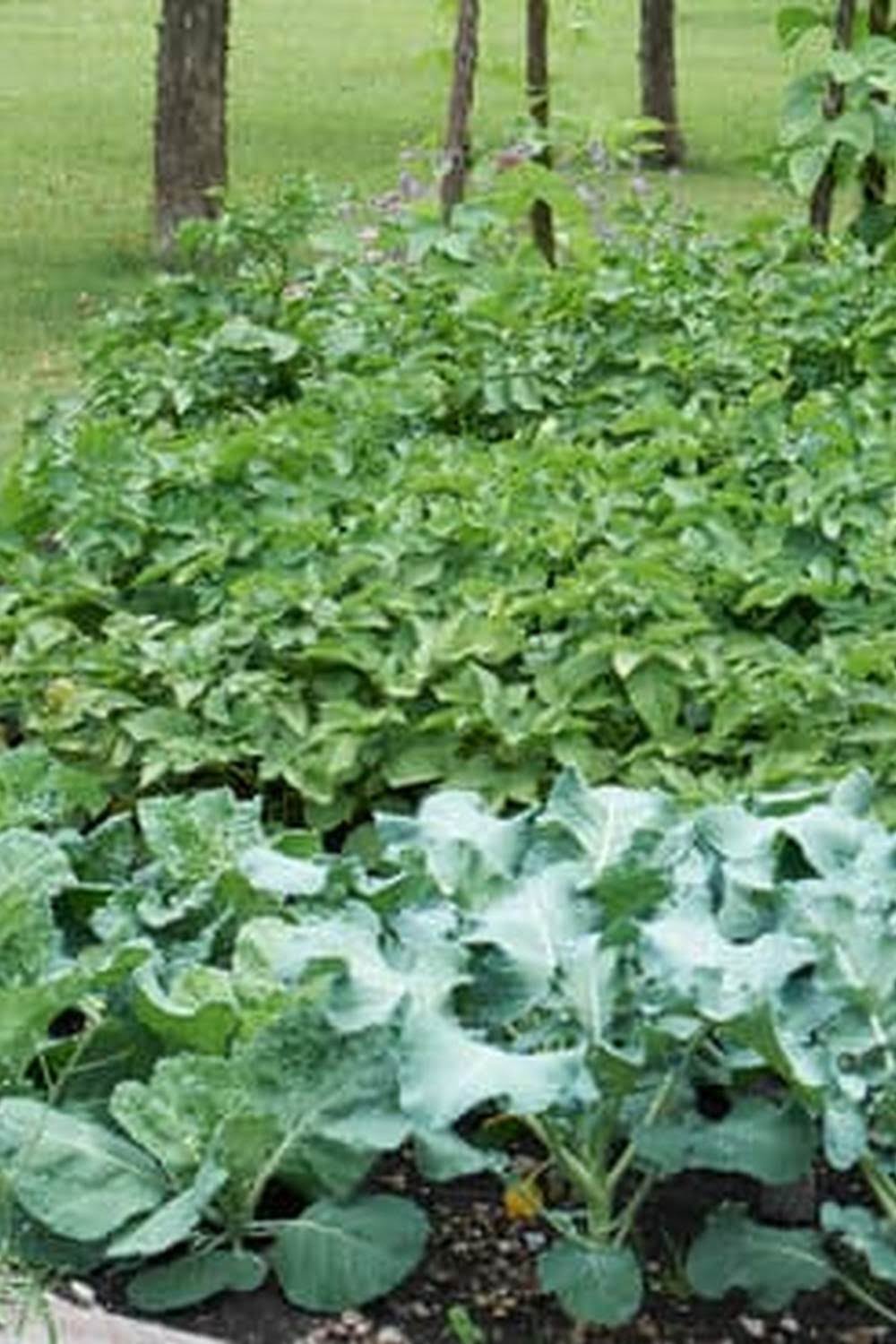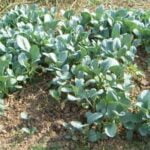When it comes to growing healthy and bountiful vegetables, choosing the right fertilizer is crucial. Not only does it provide essential nutrients for plant growth, but it also plays a significant role in maintaining soil health. One common fertilizer used by many gardeners is aluminum sulfate. However, the question arises – is aluminum sulfate safe for vegetable gardens?
In this article, we will delve into the topic of aluminum sulfate usage in vegetable gardens to determine its safety and effectiveness. We will explore its benefits, potential risks, environmental impact, and alternatives that can achieve similar results without compromising our health or the environment.
Understanding the nature of aluminum sulfate is essential before deciding to use it in your vegetable garden. Aluminum sulfate is a chemical compound commonly used to lower soil pH levels and enhance plant nutrient availability.
It has gained popularity for its ability to acidify alkaline soils and reduce alkalinity-related issues such as poor nutrient absorption by plants. However, while these advantages may seem enticing, it is vital to evaluate whether aluminum sulfate poses any risks or drawbacks that may outweigh its benefits.
By examining scientific studies and expert opinions, we aim to provide you with well-rounded information on aluminum sulfate’s safety and efficacy in vegetable gardens. This knowledge will enable you to make an informed decision about using aluminum sulfate or exploring safer alternatives for your fertilization needs. So let us dive deeper into this fascinating topic and unravel the truth behind aluminum sulfate’s suitability for vegetable gardens.
Understanding Aluminum Sulfate
Aluminum sulfate is a chemical compound that is commonly used in gardening due to its versatility and effectiveness. It is a white crystalline substance that is soluble in water, making it easy to apply to soil. Aluminum sulfate is primarily used to adjust soil pH levels and improve nutrient availability for plants.
One of the main uses of aluminum sulfate in gardening is to lower soil pH levels. This can be particularly beneficial for vegetable gardens because most vegetables thrive in slightly acidic soil conditions. By adjusting the pH level, aluminum sulfate helps create optimal growing conditions for vegetables by making essential nutrients more readily available to plants.
In addition to adjusting pH levels, aluminum sulfate also provides other benefits for vegetable gardens. It can help improve the structure of heavy clay soils by promoting better water drainage and reducing compaction. This allows plant roots to access oxygen more easily and prevents water from pooling around the root zone, which can lead to root rot and other moisture-related issues.
Furthermore, aluminum sulfate can enhance the availability of certain nutrients in the soil. It works by breaking down insoluble forms of phosphorus into more soluble forms that plants can absorb. This promotes healthy root development and encourages increased flowering and fruiting in vegetable plants.
Overall, understanding what aluminum sulfate is and its common uses in gardening is essential when considering its application in vegetable gardens. While it does offer potential benefits such as improving soil acidity and nutrient availability, it is important to consider potential risks and concerns associated with its usage. In the following sections, we will explore these factors in greater detail to help you make informed decisions about using aluminum sulfate in your vegetable garden.
Benefits of Aluminum Sulfate in Vegetable Gardens
Aluminum sulfate can offer several potential benefits when used in vegetable gardens. One of the main advantages is its ability to improve soil acidity. Many vegetables prefer slightly acidic soil conditions, and aluminum sulfate can help lower the pH level of alkaline soils, creating a more favorable environment for plant growth.
In addition to adjusting soil acidity, aluminum sulfate can also increase the availability of nutrients to plants. It helps release essential elements like phosphorus, potassium, and micronutrients from the soil particles, making them more accessible for uptake by plant roots. This can lead to healthier and more productive vegetable crops.
Moreover, aluminum sulfate has been found to enhance the growth and development of certain vegetables. For example, it has been reported that aluminum sulfate application can significantly increase the size and yield of tomatoes. Other crops that may benefit from its usage include blueberries, roses, and hydrangeas.
However, it is important to note that while aluminum sulfate can provide these potential benefits in vegetable gardens, its usage should be carefully considered. The next section will discuss some of the risks and concerns associated with the use of aluminum sulfate in order to provide a well-rounded perspective on its suitability for vegetable gardeners.
| Potential Benefits |
|---|
| – Improves soil acidity |
| – Increases nutrient availability |
| – Enhances growth and yield of certain vegetables |
Potential Risks and Concerns
Aluminum sulfate has many benefits for vegetable gardens, but it is important to be aware of the potential risks and concerns associated with its usage. While aluminum sulfate can improve soil acidity and nutrient availability, there are certain drawbacks that should be taken into consideration.
One of the main concerns with aluminum sulfate is its negative effect on plants. When used in excessive amounts or if not properly applied, aluminum sulfate can create a toxic environment for plants. It can result in root damage, stunted growth, and even plant death. It is crucial to follow the recommended application rates and guidelines to minimize any potential harm to the plants.
In addition to its impact on plants, aluminum sulfate also raises concerns regarding soil health. This fertilizer can increase the acidity of the soil over time. While some plants thrive in acidic soil conditions, others may struggle to grow or suffer nutrient deficiencies. Therefore, it is essential to monitor the pH levels of the soil regularly and make necessary amendments accordingly.
Another significant concern relates to human health effects. Aluminum sulfate has been found to have low toxicity for humans when used as directed in gardening practices. However, ingestion or inhalation of large amounts can cause irritation and respiratory issues. It is advised to wear protective gear such as gloves and a mask when handling aluminum sulfate and avoid direct contact with skin or eyes.
To address these risks and concerns associated with aluminum sulfate usage in vegetable gardens, it is important to consider alternative methods or products that provide similar benefits without the potential drawbacks. Organic fertilizers and natural soil amendments are excellent alternatives that can promote healthy plant growth without compromising soil health or posing risks to human health.
Overall, while aluminum sulfate can be effective for enhancing soil acidity and nutrient availability in vegetable gardens, it is crucial to weigh its advantages against the potential risks and concerns involved. By researching alternative options and following best practices for using aluminum sulfate safely in garden settings, gardeners can make informed decisions that will promote both healthy plant growth and environmental sustainability.
Environmental Impact
Aluminum sulfate, commonly used in gardening as a soil amendment, can have potential environmental consequences that should be considered. It is important to understand these impacts before deciding whether to use this product in your vegetable garden. This section will explore the potential risks associated with aluminum sulfate usage, particularly in terms of water contamination and harm to beneficial soil organisms.
Water Contamination
One of the major concerns regarding the use of aluminum sulfate in vegetable gardens is its potential to contaminate water sources. Aluminum ions can easily dissolve in water and runoff from treated soils, potentially entering nearby streams, rivers, or groundwater systems. The presence of elevated levels of dissolved aluminum can have detrimental effects on aquatic ecosystems by interfering with the biological processes of plants and animals.
To mitigate this risk, it is essential to follow proper application guidelines when using aluminum sulfate. Avoid over-application and ensure that you are targeting specific plants or areas in your garden that require soil acidification. Additionally, consider implementing practices that reduce runoff, such as incorporating a thick layer of organic mulch or installing vegetative buffers around your garden to help filter and slow down water flow.
Harm to Beneficial Soil Organisms
Another consideration when using aluminum sulfate is its potential impact on beneficial soil organisms. These organisms play important roles in maintaining soil health and fertility by decomposing organic matter, cycling nutrients, and improving soil structure. Research has suggested that high concentrations of aluminum ions (typically above optimal pH) can suppress microbial populations and activity in the soil.
To minimize harm to beneficial soil organisms, it is recommended to apply aluminum sulfate sparingly and selectively target areas where plant growth and development would benefit from lowered pH levels. Consider testing the pH of your soil before applying any amendments to ensure you are accurately adjusting acidity without causing unnecessary damage to helpful microbes.
Alternatives to Aluminum Sulfate
Alternatives to Aluminum Sulfate: Presenting alternative methods or products that can achieve similar results without the potential risks, such as organic fertilizers or natural soil amendments.
When considering using fertilizer in vegetable gardens, many gardeners may have concerns about the safety and environmental impact of aluminum sulfate. Fortunately, there are alternative methods and products available that can achieve similar results without the potential risks associated with aluminum sulfate. These alternatives include organic fertilizers and natural soil amendments.
Organic fertilizers are derived from natural sources such as compost, manure, or plant-based materials. They provide essential nutrients to plants while promoting soil health and fertility. One popular option is compost, which can be made from kitchen scraps, yard waste, or animal manure. Compost not only supplies nutrients to plants but also improves soil structure and water retention. Other organic fertilizers include bone meal, fish emulsion, and seaweed extract.
Natural soil amendments are another effective alternative to aluminum sulfate. Examples of natural soil amendments include agricultural lime (calcium carbonate) and elemental sulfur. Agricultural lime is often used to raise the pH of acidic soils by increasing their alkalinity. Elemental sulfur can be used to lower soil pH in alkaline soils. Both of these amendments help create a more balanced soil environment for optimal plant growth.
In addition to organic fertilizers and natural soil amendments, some gardeners may opt for more sustainable practices such as crop rotation, companion planting, and cover cropping. These practices help replenish nutrients in the soil naturally and reduce the need for synthetic fertilizers altogether.
By choosing alternatives to aluminum sulfate, gardeners can ensure the health of their plants while minimizing potential risks to their own well-being and the environment. It is important for gardeners to research and carefully consider which method or product aligns with their specific needs and preferences in order to maintain a safe and thriving vegetable garden.
Best Practices for Using Aluminum Sulfate
Using aluminum sulfate as a fertilizer in vegetable gardens can be done safely by following some best practices and guidelines. It is important to ensure that you are using the correct application rates and taking necessary precautions to minimize any potential risks.
First, it is crucial to determine the pH level of your soil before applying aluminum sulfate. This will help you determine if the soil actually needs additional acidity or if there are other methods that may be more appropriate for balancing the pH.
Conduct a soil test by using a testing kit or sending a sample to a laboratory for analysis. This will provide accurate information about the current pH levels and allow you to make informed decisions about amending your soil.
Once you have confirmed that your soil requires acidification and decided to use aluminum sulfate, it is essential to follow proper application rates. Over-applying aluminum sulfate can result in an excessively low pH level, which can negatively affect plant growth and health. Refer to the product label or consult with local agricultural extension offices for recommended application rates specific to your region and type of vegetables.
When applying aluminum sulfate, take precautionary measures to protect yourself and the environment. Wear appropriate protective clothing such as gloves, long sleeves, and goggles when handling the fertilizer. Apply it on calm days when there is no wind to prevent accidental drift onto unintended areas or plants adjacent to your vegetable garden.
Furthermore, consider using alternative methods or products that can achieve similar results without potential risks associated with aluminum sulfate usage. Organic fertilizers or natural soil amendments can provide essential nutrients while also improving soil structure and supporting beneficial microorganisms.
By adhering to these best practices for using aluminum sulfate in vegetable gardens, you can maximize its benefits while minimizing any potential risks. Always remember to consider the specific needs of your soil, perform regular soil testing, follow recommended application rates, and take necessary precautions during handling and application.
References:
- Smithson A et al., (2015) Safe Use Suggestions for Aluminum Sulphate. University of Massachusetts Extension.
- Eckerberg T et al., (2003) Sustainable Food Systems: Building a New Paradigm. Earthscan Publications
Research and Expert Opinions
When considering the use of aluminum sulfate in vegetable gardens, it is important to look at scientific research and expert opinions to gain a better understanding of its safety and efficacy. Several studies have been conducted on the impact of aluminum sulfate on plants, soil, and human health.
A study published in the Journal of Soil Science Society of America examined the effects of aluminum sulfate application on soil pH levels and nutrient availability in vegetable gardens. The researchers found that aluminum sulfate can effectively lower soil pH, making it suitable for crops that prefer acidic conditions. However, they also noted that excessive application of aluminum sulfate can result in nutrient imbalances, as it can release toxic levels of aluminum into the soil.
In terms of plant health, another study published in Environmental Science & Technology assessed the impact of aluminum sulfate on various vegetable crops. The findings suggested that moderate use of aluminum sulfate did not cause significant harm to the growth and yield of most vegetables. However, some sensitive crops like beans and peas showed reduced growth when exposed to high levels of aluminum ions.
Expert opinions also play a crucial role in understanding the implications of using aluminum sulfate in vegetable gardens. Dr. Rachel Kleinberg, a horticulturist with over 20 years of experience, suggests that while aluminum sulfate can be beneficial for certain plants and soils, it should be used sparingly and with caution. She emphasizes the importance of conducting soil tests before applying any fertilizer to ensure appropriate dosages.
Overall, both scientific research and expert opinions highlight the potential benefits as well as risks associated with using aluminum sulfate in vegetable gardens. It is advisable for gardeners to take into consideration their specific crop requirements, conduct regular soil tests, and follow recommended application rates to minimize any negative effects.
| Study/Expert Opinion | Main Findings |
|---|---|
| Journal of Soil Science Society of America | Aluminum sulfate can effectively lower soil pH but excessive application can lead to nutrient imbalances and toxic levels of aluminum. |
| Environmental Science & Technology study | Moderate use of aluminum sulfate does not cause significant harm to most vegetable crops, but sensitive crops may experience reduced growth at high levels. |
| Dr. Rachel Kleinberg (Horticulturist) | Aluminum sulfate should be used sparingly and with caution, conducting soil tests before application is essential to ensure appropriate dosages. |
Conclusion
In conclusion, the use of aluminum sulfate in vegetable gardens can have both benefits and potential risks. On the positive side, it can help improve soil acidity and increase nutrient availability for plants. However, it is important to be aware of the safety concerns associated with its usage. Aluminum sulfate can negatively affect plants, soil, and even human health if not used properly. Additionally, there are potential environmental consequences such as water contamination and harm to beneficial soil organisms.
Considering these factors, it is crucial for gardeners to make informed decisions about whether or not to use aluminum sulfate in their vegetable gardens. There are alternative methods and products available that can achieve similar results without the potential risks. Organic fertilizers or natural soil amendments are great options to consider.
If you do choose to use aluminum sulfate, follow best practices to ensure its safe usage. This includes adhering to proper application rates and taking necessary precautions to protect yourself and your garden.
It is also recommended to keep up with research and expert opinions in order to stay informed on the latest findings regarding the safety and efficacy of aluminum sulfate in vegetable gardens.
Ultimately, by weighing the benefits against the potential risks, considering alternatives, and practicing safe usage, individuals can make informed decisions about whether or not aluminum sulfate is right for their vegetable gardens.
Frequently Asked Questions
Is aluminum sulfate good for tomatoes?
Aluminum sulfate can be beneficial for tomatoes in certain situations. It is commonly used to slightly lower the pH of soil, making it more acidic. This can be advantageous for tomatoes as they prefer a slightly acidic soil with a pH range of 6.0 to 6.8.
Aluminum sulfate can help balance the pH levels and allow the plants to take up essential nutrients more effectively, promoting healthy growth and potentially enhancing fruit production. However, it is essential to use aluminum sulfate judiciously and not exceed the recommended dosage, as excessive acidity can harm tomato plants.
Is aluminum sulfate safe to use on vegetables?
While aluminum sulfate can be safe to use on vegetables when applied correctly, it is important to exercise caution when using any chemical in your garden. Aluminum sulfate is generally considered safe when used according to product instructions and recommendations from agricultural extension offices or experts.
It is crucial to understand that safety may vary depending on factors such as dosage, timing, environmental conditions, and specific vegetable varieties. It is advisable to conduct a soil test before application to ensure that your vegetables will benefit from the treatment and that the soil won’t become excessively acidic.
How do I apply aluminum sulfate to my vegetable garden?
When applying aluminum sulfate to your vegetable garden, it is important first to assess whether your soil requires acidification and if your chosen vegetables would benefit from it. Conducting a soil test can provide valuable information about the current pH levels and nutritional composition of the soil. If an acidification treatment is recommended, you should prepare the desired amount of aluminum sulfate according to package instructions or guidance from professionals familiar with your region’s agriculture.
Carefully spread or sprinkle the aluminum sulfate evenly over the garden bed surface; avoid clumping or concentration around individual plants by evenly distributing it across the entire area where you intend to grow vegetables. Afterward, gently incorporate the aluminum sulfate into the top few inches of soil by tilling lightly or using a garden fork while avoiding damage to plant roots. Finally, make sure you water thoroughly after application to allow the aluminum sulfate to penetrate the soil and initiate the desired pH adjustment.

If you’re looking to get into vegetable gardening, or are just looking for some tips on how to make your current garden better, then you’ve come to the right place! My name is Ethel and I have been gardening for years. In this blog, I’m going to share with you some of my best tips on how to create a successful vegetable garden.





